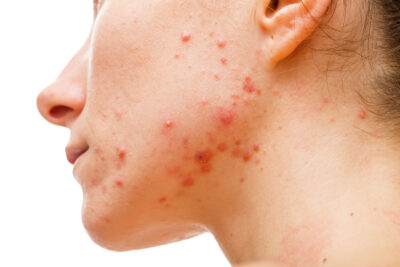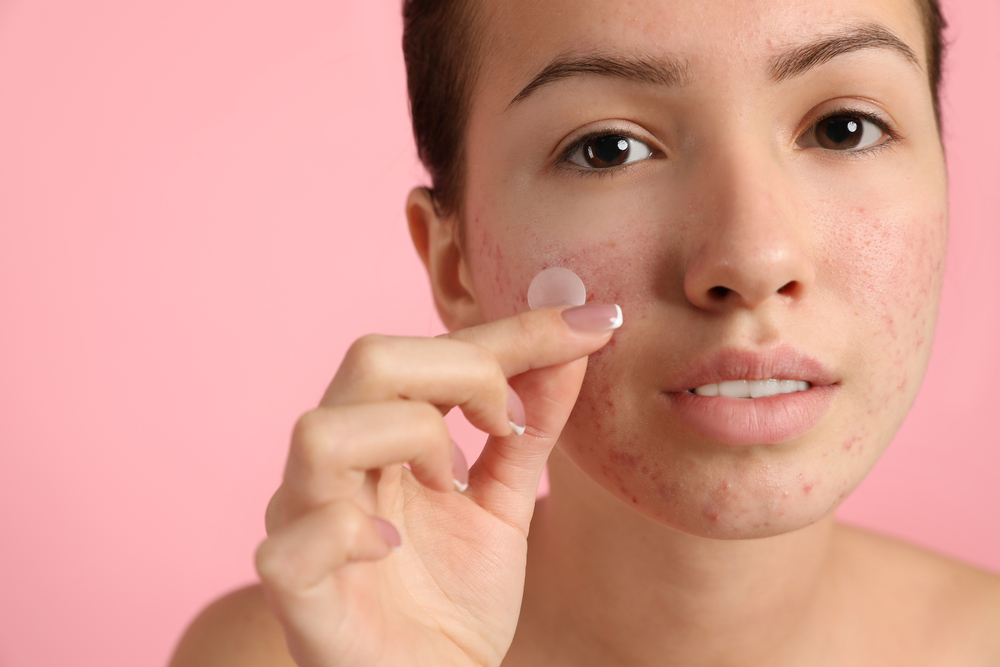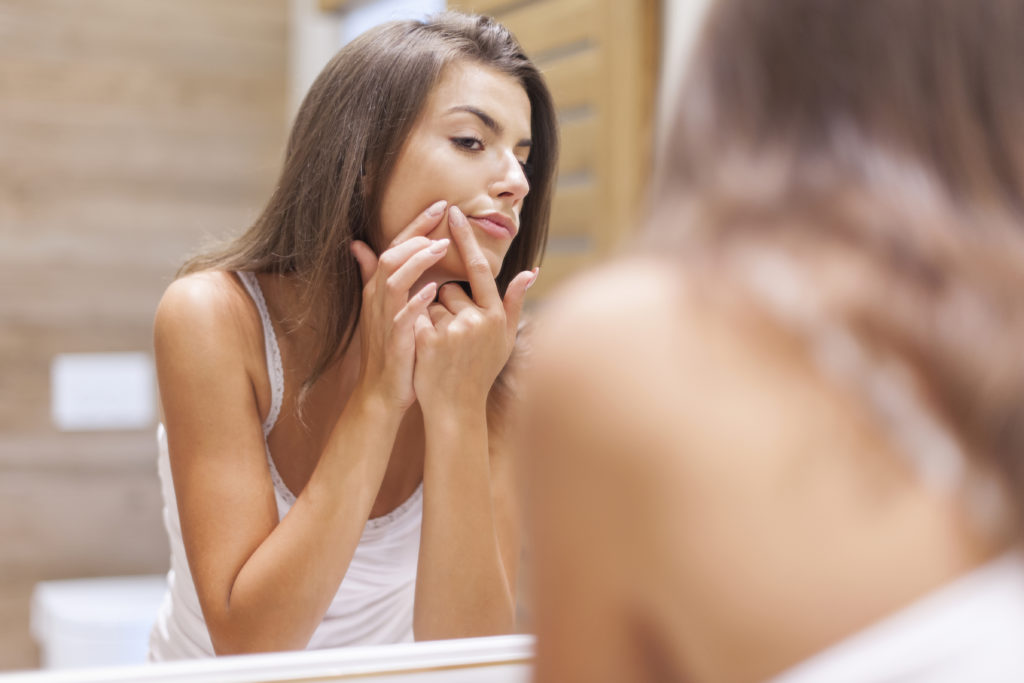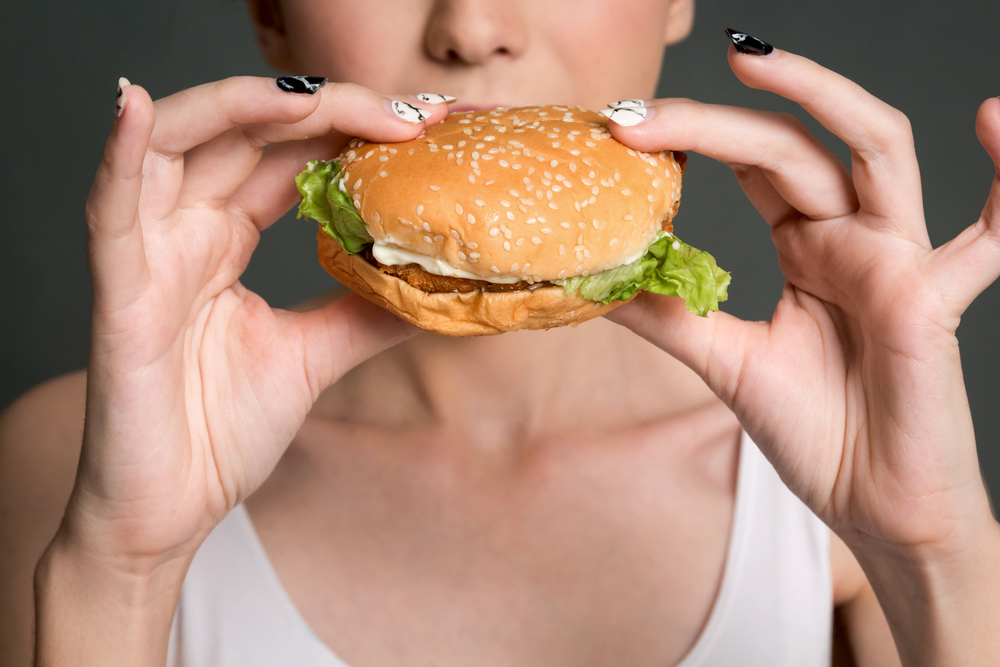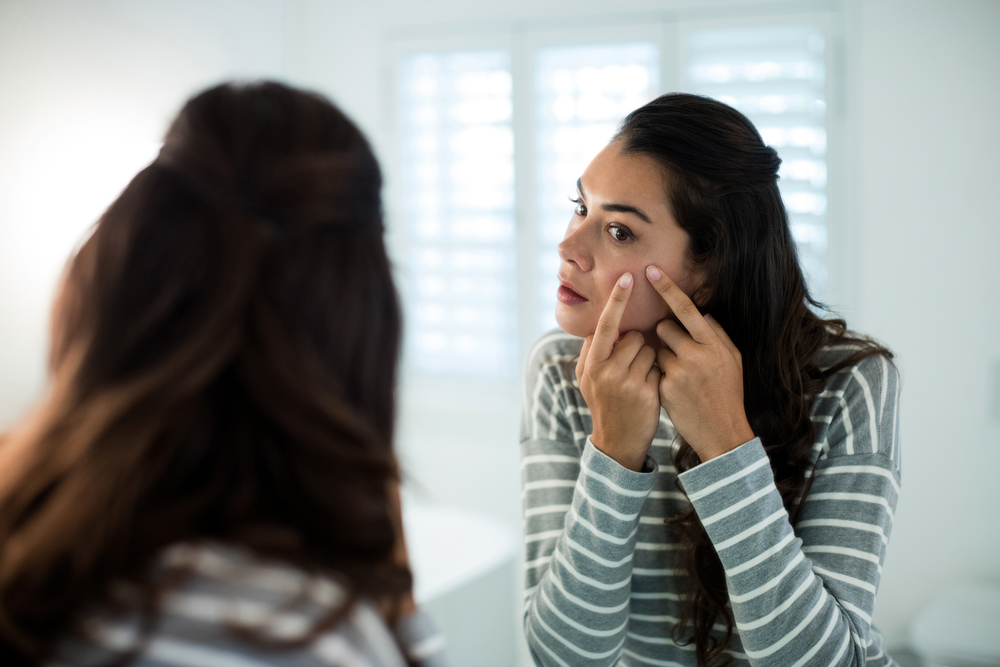If you struggle with acne, you’re probably doing everything in your power to treat it, from over-the-counter spot treatments to utilizing natural methods like tea tree oil to using prescription treatments from your dermatologist. One thing that pops up again and again when trying to treat acne is the idea of an acne face map.
People believe that an acne face map can tell them what is causing their acne and what they need to do to treat it. However, this depends on what type of face map you use. It’s always important to remember that everyone is different, so what causes acne for one person may not cause it in another.
As such, if you ever want to know the true cause of your acne, it’s best to consult with a dermatologist, as they will be able to provide you with specific information related to your unique situation.
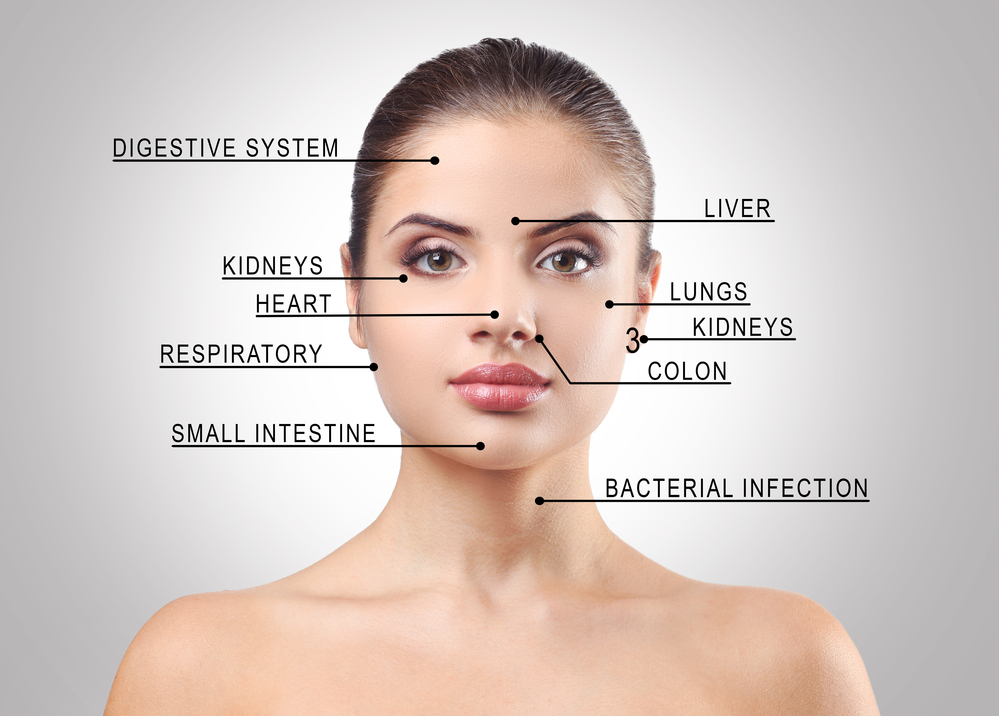
That said, here is what you need to know about the acne face map and whether or not you should trust it.
What Is The Acne Face Map?
The idea of face mapping stems from China and has been in use for over 3000 years. The idea of it is that your internal organs are connected to different parts of your face. Thus, if you have acne or dryness or redness in one part of your face, you may have a problem with one of your organs.
There isn’t the research needed in order to back this idea. However, some of it holds up to dermatological practices and what is known about acne.
Here is what the acne face map claims about the skin on your face and its connections to your organs.
- Forehead. If you have forehead breakouts, this is supposedly connected to your liver and digestive system.
- Nose. Acne on the nose, like blackheads, is said to be connected to your heart.
- Cheeks. If you have acne on your cheeks, this points to your stomach and respiratory system.
- Jawline. This is linked to reproductive or hormonal problems, and is part of this acne face map that holds up to modern research.
There is a lack of controlled studies and adequate research in order to prove that this is accurate or helpful.
In short, this type of acne face map is more of a pseudoscience than anything else.
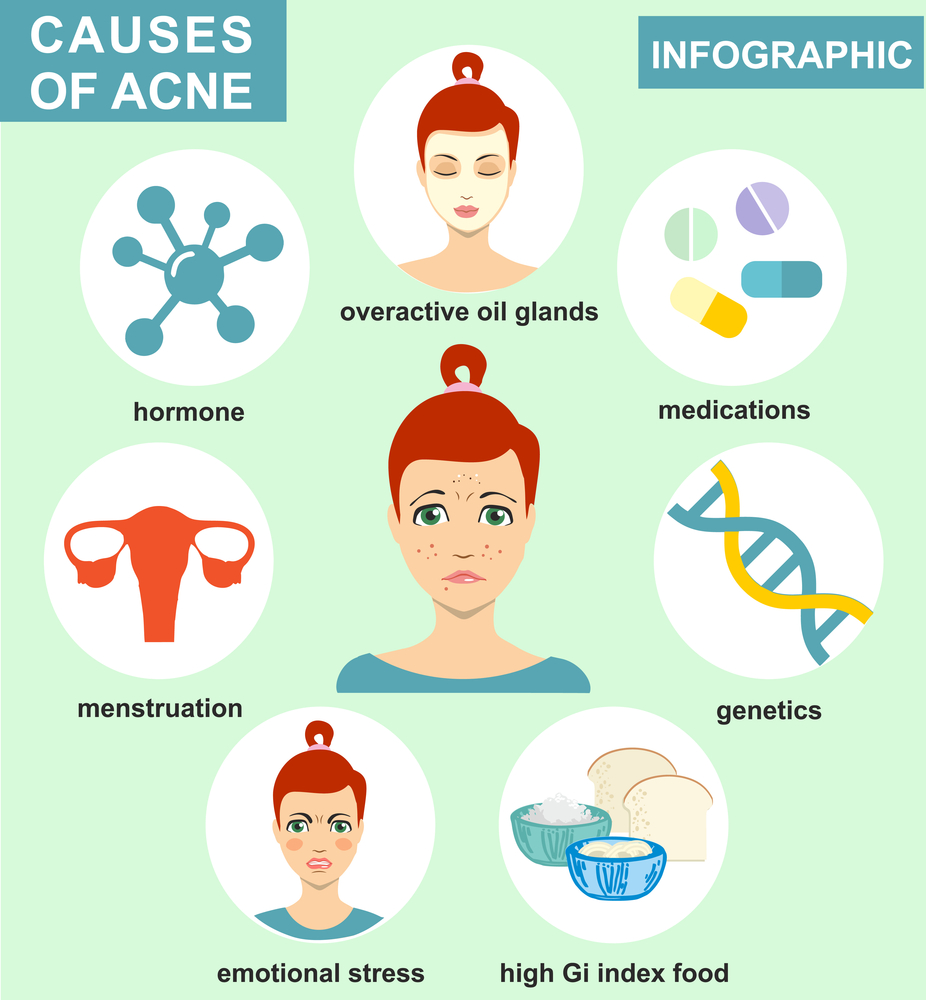
Do Dermatologists Use The Acne Face Map?
As a way to diagnose issues within your body? Not necessarily. However, acne on certain parts of your face can give indicators to what is causing it. Science-backed acne treatment methods point to certain causes of acne you can treat on your face.
When you see a dermatologist for acne, they will be able to pinpoint the causes of your acne and how you can treat it.
An acne face map that can give you an idea of what causes your acne (but is not foolproof) is as follows:
- Forehead. If you have breakouts on your forehead or hairline, this can be because of hair products clogging your pores, oil and grease from your hair, or simply touching your forehead too much.
- Nose. Blackheads and whiteheads are most common here, and tend to result from excessive oil production.
- Cheeks. Acne here can result from friction, such as from your pillowcase or holding your phone.
- Jawline. As mentioned before, this is where the two acne face maps align. Acne on your jawline tends to coincide with hormonal changes, such as period acne.
It’s important to note that everyone is different. This is why the acne face map is not a foolproof method in order to determine the cause of your acne. If you struggle with persistent acne, it’s best to see a dermatologist.
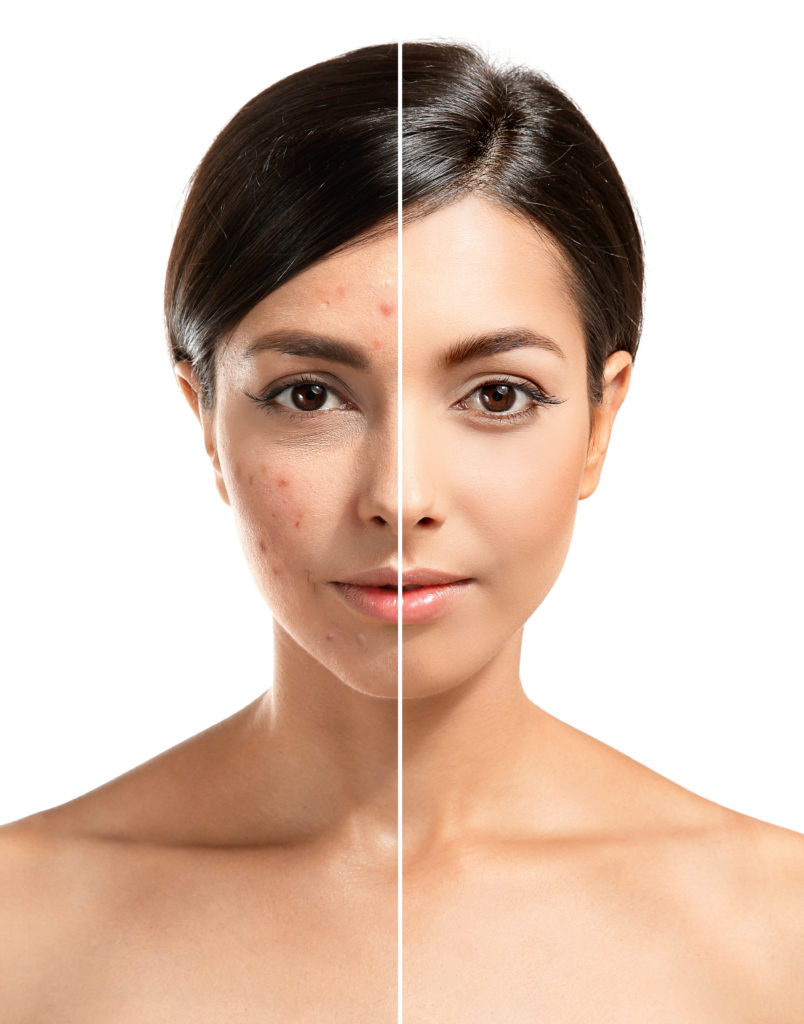
There are indeed cases where acne is connected to another health issue. For instance, some people may find that their acne is worse when they have dairy and then when they have less of it, their skin improves. If you have acne that just doesn’t go away, you could simply be acne-prone, or this could mean that you have an underlying health issue and acne is just a symptom.
This could be where the idea of the acne face map came from in the first place, even if it isn’t a reliable source for getting to the root cause of your acne.
Do You Need Acne Treatment?
Have you been looking at acne face maps and trying to figure out what is causing your acne only to still struggle with it? Allen Taintor Dermatology is here to help. Contact us today to schedule an appointment and let us help you on your journey to clear skin.

